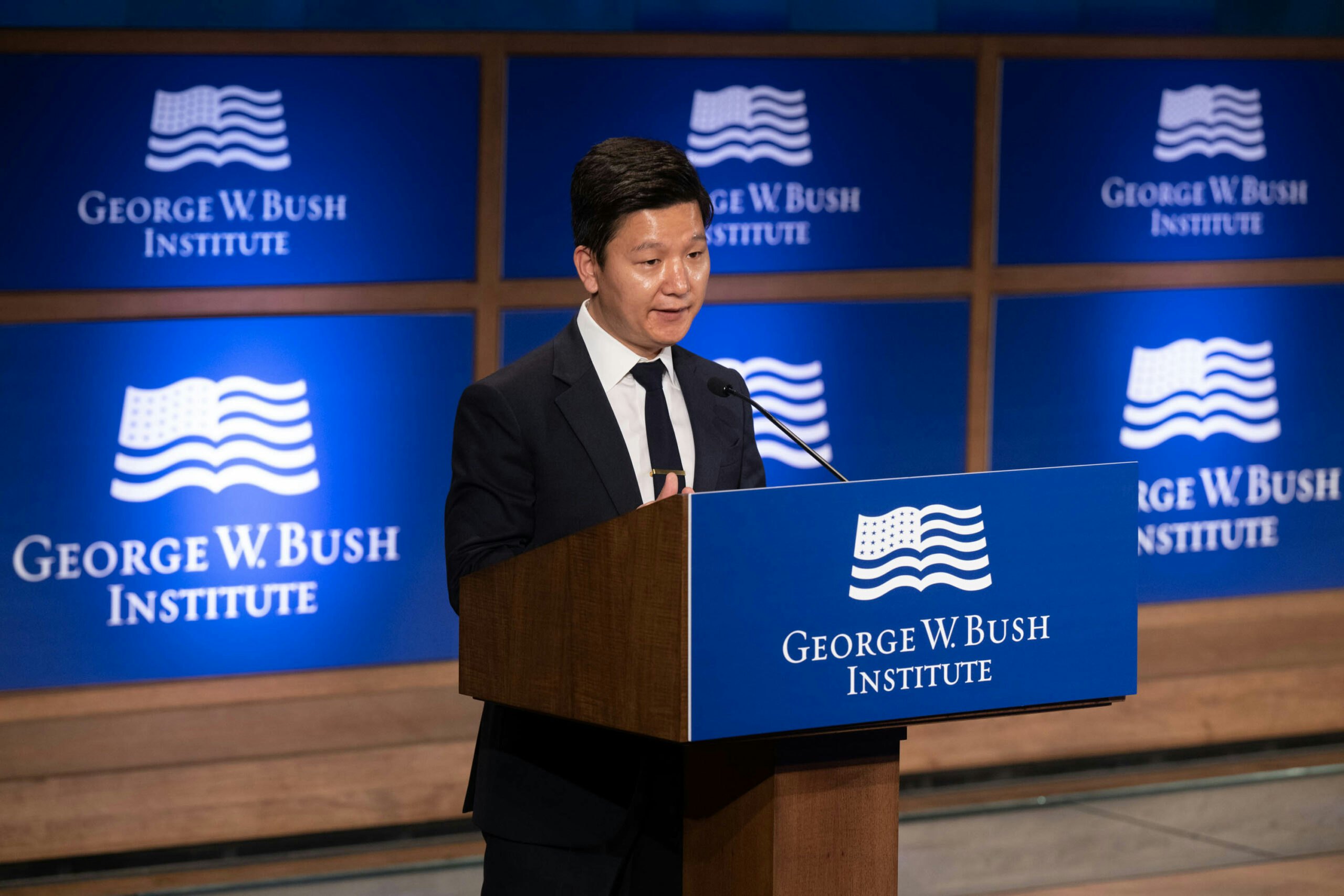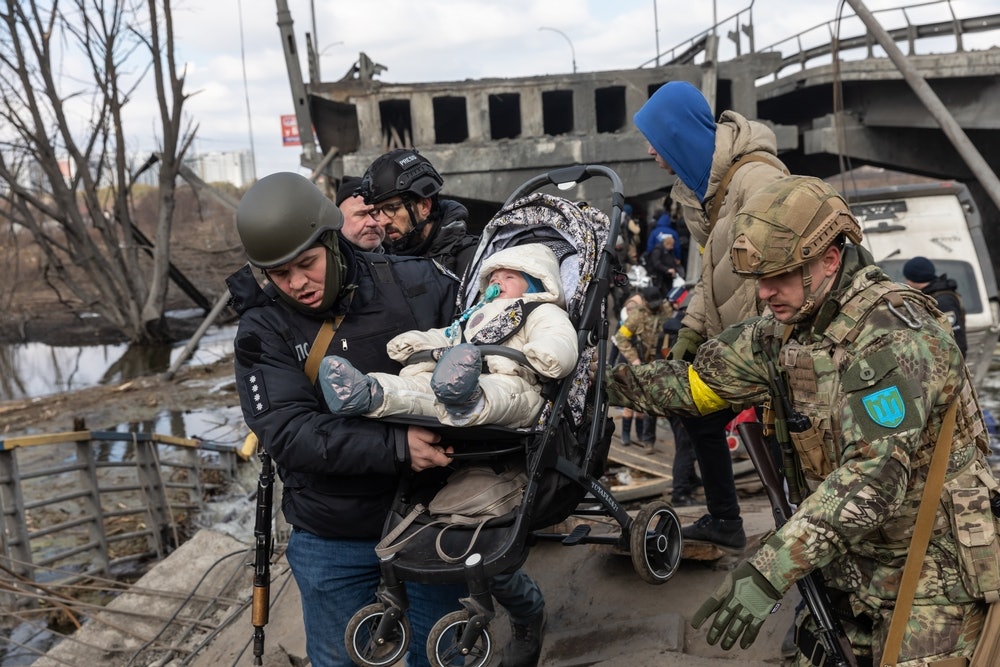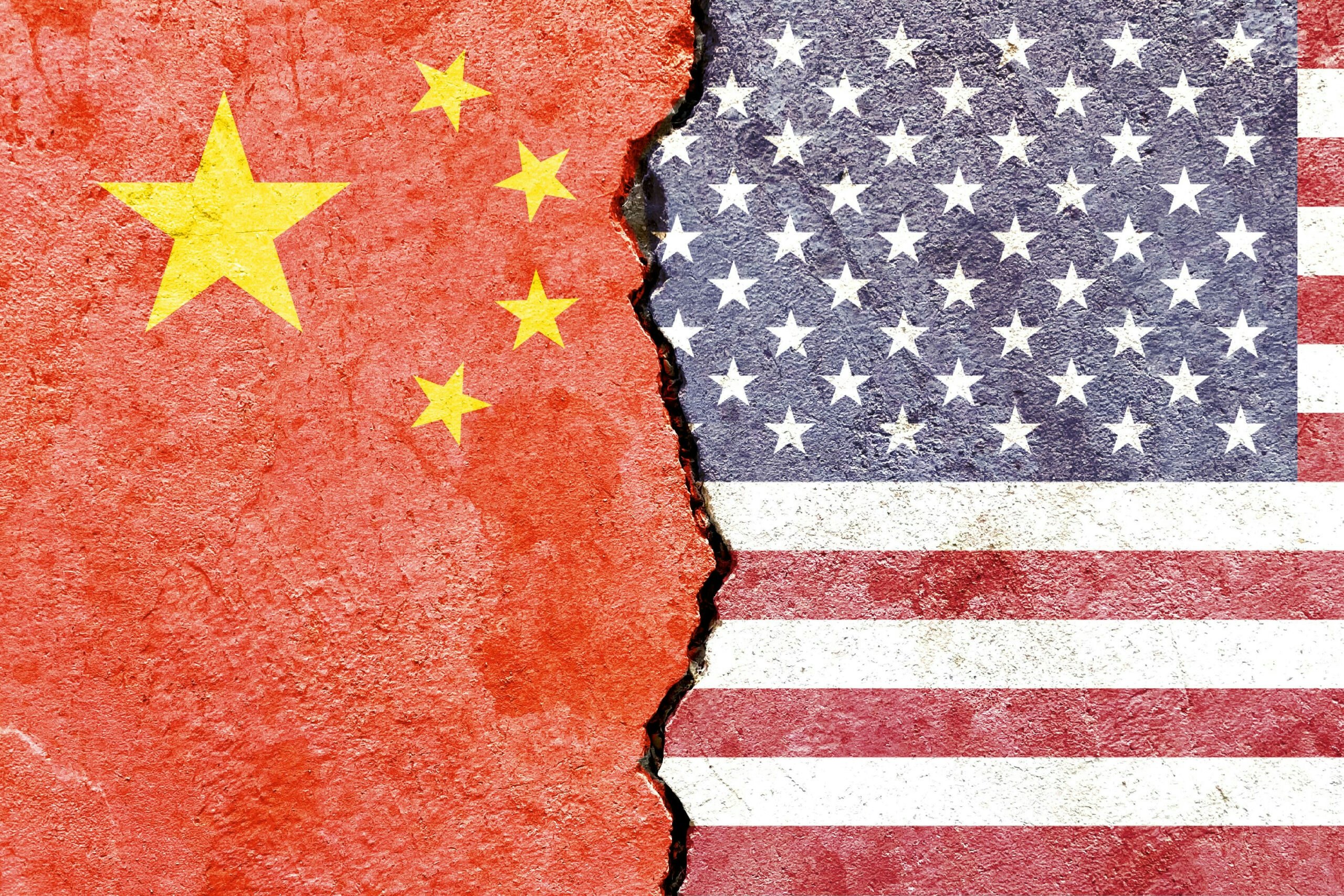Michael Abramowitz discusses the impact of populist movements on democracies, the challenges democracies with struggling economies face, and the tension in the world between the desire for freedom and security.
Michael Abramowitz serves as president of Freedom House, a bipartisan organization whose roots go back to its push against isolationism in the days leading up to World War II. Devoted to promoting democratic institutions around the world, its work includes the annual Freedom in the World analysis of the health of democracy in every nation.
In this Democracy Talks interview with Lindsay Lloyd, the Bush Institute’s Bradford M. Freeman Director of Human Freedom Initiative, Abramowitz discusses such issues as the impact of populist movements on democracies, the challenges democracies with struggling economies face, and the tension in the world between the desire for freedom and security. The former Washington Post reporter also emphasizes that the thirst for human rights and freedom exist around the world in places like Hong Kong, Sudan, and Taiwan, creating hope for the cause of democracy.
Below is an excerpt from their conversation:
What do you see as the impact of populism on democracy around the world and the roots of it?
It differs from place to place. There’s right-wing versions of populism in places like Poland and Hungary. Then there’s left-wing versions in places like Venezuela. It’s a global phenomenon.
I don’t necessarily think that populism is entirely a bad thing in the sense that democracies have to be responsive to people. It’s legitimate for the people to raise concerns and to throw out people who they feel aren’t delivering.
But the question is what do populists do when they get in power? In cases like Hungary or Venezuela, populists have moved to restrict rights, liberty, and freedom. That’s what we’re concerned about at Freedom House.
We see countries like China where there’s been great economic progress, but very little political progress or even a place like Singapore where you’ve had sort of a soft authoritarianism. Can poor democracies be sustained?
China is an interesting case study because 20 or 30 years ago the conventional wisdom was that as the country lifted itself out of the chaos and the poverty of the Mao era, it would become more open to democratic and liberal values. Not that it would become a democracy like the U.S., but that it would be a more open society.
What’s really quite interesting and concerning in China is substantial economic growth, but in an increasingly authoritarian context where China is getting less free. That’s of deep concern. In the long-term, it’s very hard to have economic growth in a restricted setting where people are being essentially persecuted for their beliefs and for thinking creatively. That is going to be a problem for China.
Also, authoritarian countries like China are not immune from the kind of pressures that face democratically-elected governments. You think just about the Chinese response to the coronavirus, which from what I can see has not been very effective. That is going to raise growing concerns about this vaunted governance structure that they can’t respond to real problems because of their pension for secrecy and closeness.
You talked about how the general global trends in freedom are not good, but it’s not bad news everywhere.
There are bright spots around the world.
The first [example] is Hong Kong, with three million people out on the streets in the past year to demand their rights. That shows the thirst for human rights and democracy is not a Western construct. It is in the hearts of people everywhere. I’m not sure how that story is going to end. I hope well, but I fear for the worst. But it’s an important sign that people care for freedom.
Another example is Taiwan. Taiwan is one of the most successful stories of democracy in the last 20 or 30 years. This was basically a military dictatorship a generation ago. It’s now, according to our scores, one of the freest and most democratic countries, one of the most vibrant democracies in the world. They see the negativity of what’s happening inside China. They don’t like it.
The last example is Sudan. Sudan has been one of the worst governed countries in Africa for a long time. They were basically under the heel of a dictator, President Bashir, who was accused of conducting genocide in Darfur. There was a movement in Sudan led by ordinary professionals, doctors, lawyers, and others, without a lot of outside help. They galvanized protests in response to the poor performance of the government which ultimately led to the ouster of President Bashir. Now there’s a chance that he will be sent to the International Criminal Court to stand [trial] for his alleged crimes.
Cases like Hong Kong, Taiwan, Sudan really give me hope that in the long term people would rather live in freedom than in slavery or under authoritarianism. But it’s a struggle of our times. It’s an existential struggle. It’s important for people in democracies to make clear where their allegiances lie.
Cases like Hong Kong, Taiwan, Sudan really give me hope that in the long term people would rather live in freedom than in slavery or under authoritarianism. But it’s a struggle of our times. It’s an existential struggle. It’s important for people in democracies to make clear where their allegiances lie.
Why is it important that the U.S. speaks out about human rights and democracy?
It’s very important that the U.S. speaks out on these issues because it’s very much in the U.S. national security interest and economic interest to do so. We do not want to live in a world in which we are surrounded by people like Xi Jinping, Vladimir Putin, Viktor Orbán, or Nicolás Maduro. That’s not a world in which Americans will feel safe. That’s not a world in which businesses and the other engines of American prosperity could thrive.






























